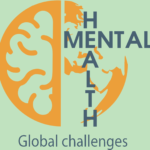ANALYSIS OF MENTAL HEALTH LITERACY AND PSYCHOLOGICAL DISTRESS AS PREDICTORS OF PSYCHOLOGICAL WELL-BEING IN SRIWIJAYA UNIVERSITY STUDENTS
DOI:
https://doi.org/10.32437/mhgcj.v4i1.114Keywords:
psychological well being, psychological distress, mental health literacyAbstract
Introduction. This research focused on answering questions: how mental health literacy and psychological distress act as predictors of psychological well-being in Sriwijaya University students.
Methodology.This research used quantitative method, by conducting instrument preparation, data collection, and analysis of data results to see the role of the independent variables on the dependent variable. Psychological well-being was measured using an instrument in a form of psychological scale referred to Psychological Scale by Ryff & Keyes (1995). Meanwhile, psychological distress was measured using WHO Self-Reporting Questionnaire 20 (SRQ-20) Indonesian version, and Mental Health Literacy measurement was adapted from O’Connor and Casey (2015). The participants of this research were consisted of 418 college students.
Results.The analysis results show that there is a role of mental health literacy and psychological distress together on psychological well-being, thus the hypothesis is accepted. Major hypothesis test was done using multiple linear regression which shows a correlation value (R) of 0.586 and a significance of 0.001 (p<0.05). For the results of minor hypothesis test, it is known that the beta value is 0.143 and the P value is 0.022 (p>0.05), this indicates that there is a role for mental health literacy on psychological well-being, thus the hypothesis is accepted. In addition, it is known that psychological well-being and psychological distress show a beta value of -1.945 and a P value of 0.001 (p>0.05), this indicates that there is a role for psychological distress on psychological well-being thus the hypothesis is accepted.
Conclusions.The percentage of mental health literacy and psychological pressure influences on psychological well-being (R adjusted) is 0.343, this also shows that the contribution of mental health literacy and psychological distress together on psychological well-being is 34.3%, while the rest is the contribution of other variables not examined in this study
References
Agteren, J. V., Woodyatt, L., Iasiello, M., Rayner, J., Kyrios, M (2019). Make It Measurable: Assessing Psychological Distress, Wellbeing and Resilience at Scale in Higher Education Student Success (studentsuccessjournal.org). Volume 10 (3) 2019. https://doi.org/10.5204/ssj.v10i3.1411
Ashfield, J. & Smith, A. (2018). The situational approach to suicide prevention and mental health literacy: Advocating for a new multi-sector and multidisciplinary approach, Male Suicide Prevention Australia. https://malesuicidepreventionaustralia.com.au/wp-content/uploads/2018/02/SA-Advocating -for-a-new-multi-sector-approach-190218.pdf. DOI: https://doi.org/10.25155/2017/150417
Bjornsen, H.N., Espnes, G.A., Eilertsen, M-E.B., Ringdal, R., & Moksnes, U.K. (2019). The relationship between positive mental health literacy and mental wel-being among adolescents: Implications for school health services. The Journal of School Nursing, 35(2), 107-116. Doi: 10.1177/1059840517732125. DOI: https://doi.org/10.1177/1059840517732125
Burns, J. R., & Rapee, R. M. (2006). Adolescent mental health literacy: Young people's knowledge of depression and help seeking. Journal of adolescence, 29(2), 225-239. DOI: https://doi.org/10.1016/j.adolescence.2005.05.004
Campbell, O.L.K, Bann, D., & Patalay, P. (2021). The gender gap in adolescent mental health: A cross-national investigation of 566,829 adolescents across 73 countries. SSM – Population Health, 13. Doi: https://doi.org/10.1016/j.ssmph.2021.100742. DOI: https://doi.org/10.1016/j.ssmph.2021.100742
Cotton, S.M., Wright, A., Harris, M.G., Jorm, A.F., & Mcgorry, P.D. (2006). Influence of gender on mental health literacy in young Australians. Australian & New Zealand Journal of Psychiatry, 40(9), 790-796. Doi: https//doi.org/10.1080/j.1440-1614.2006.01885.x. DOI: https://doi.org/10.1080/j.1440-1614.2006.01885.x
Dias, P., Campos, L., Ameida, H., & Palha, F. (2018). Mental health literacy in young adults: Adaptaion and psychometric properties of the mental health literacy questionnaire. Int. J. Environ. Res. Public Health, 15 (1318), 1-13. Doi: 10.3390/ijerph15071318. DOI: https://doi.org/10.3390/ijerph15071318
Farrer, L., Leach, L., Griffiths, K. M., Christensen, H., & Jorm, A. F. (2008). Age differences in mental health literacy. BMC Public Health, 8(1). DOI: https://doi.org/10.1186/1471-2458-8-125
Inchaithep, S., Punsawat, M., & Nuntana. (2018). Mental health literacy among people in Lampang Province, Thailand. The 6th Asian Academic Society International Conference (AASIC), 73-78.
Jorm, A.F., Korten, A.E., Jacomb, P.A., Christensen, H., Rodgers, B., & Pollitt, P. (1997). “Mental health literacy”: a survey of the public’s ability to recognise mental disorders and their beliefs about effectiveness of treatment. Med J Austral, 166, 182-186. DOI: https://doi.org/10.5694/j.1326-5377.1997.tb140071.x
Jorm, A. F. (2000). Mental health literacy: Public knowledge and beliefs about. British Journal of Psychiatry, 177, 396-401. DOI: https://doi.org/10.1192/bjp.177.5.396
Jorm, A.F. (2012). Mental health literacy: Empowering the community to take action for better mental health. American Psychological Association, 67(3), 231-243. Doi: 10.1037/a0025957. DOI: https://doi.org/10.1037/a0025957
Mardhiyah, SA., Iswari, R.D. & Juniarly, A. (2019), Inisiasi mental health awareness melalui screening dan promosi kesehatan mental pada mahasiswa Universitas Sriwijaya. DOI: https://doi.org/10.37061/jps.v7i4.12359
Matthews, G. (2000). Distress. Fink (ed) in Encyclopedia of stress Volume 1 (A-D): New York: Academic press.
Mirowsky, J., & Ross, C. E. (2003). Social causes of psychological distress. New York: Aldine De Gruyer.
NAMI. (2012). College students speak. A survey on mental health. NAMI, 8- 10. Retrieved from http://www.nami.org/collegesurvey.
O’Connor, M., Casey, L., & Clough, B. (2014). Measuring mental health literacy – a review of scale-based measures. Journal of Mental Health, 23(4), 197-204. Doi: 10.3109/09638237.2014.910646. DOI: https://doi.org/10.3109/09638237.2014.910646
O’Connor, M. & Casey, L. (2015). The mental health literacy scale (MHLS): A new scale-based measure of mental health literacy. Psychiatry Research, 229(1), 511-516. Doi: http”//dx.doi.org/10.1016/j.psychres.2015.05.064. DOI: https://doi.org/10.1016/j.psychres.2015.05.064
Pederelli, P., Yeung, Nyer & Zulauf (2016). College Students: Mental Health Problems and Treatment Considerations. Academic Psychiatry. 39 (5). DOI: https://doi.org/10.1007/s40596-014-0205-9
Pengpid, S. & Peltzer, K. (2020). Prevalence and associated factors of psychological distress among a national sample of in-school adolescents in Morocco. BMC Psychiatry, 20(475), 1-11. Doi: https://doi.org/10.1186/s12888-020-02888-3. DOI: https://doi.org/10.1186/s12888-020-02888-3
Reis, F.J., Lopes, D., Rodrigues, J.S., Gosling, A.P., & Gomes, M.T. (2014). Psychological distress and quality of life in leprosy patients with neuropathic pain. Leprosy Review. 85, 186–193 DOI: https://doi.org/10.47276/lr.85.3.186
Ryff, C.D. (1989). Happiness is everything, or is it? Explorations on the meaning of psychological well-being. Journal of personality and social psychology. 57(6), 1069-1081. DOI: https://doi.org/10.1037/0022-3514.57.6.1069
Ryff, C. D., & Keyes, C. L. M. (1995). The structure of psychological well-being revisited. Journal of personality and social psychology, 69(4). DOI: https://doi.org/10.1037/0022-3514.69.4.719
Tian, S., Zhang, T-Y., Miao, Y-M., & Pan, C-W. (2021). Psychological distress and parental involvement among adolescents in 67 low-income and middle-income countries: A population-based study. Journal of Affective Disorders, 282, 1101-1109. Doi: https://doi.org/10.1016/j.jad.2021.01.010. DOI: https://doi.org/10.1016/j.jad.2021.01.010
Vasquez, A.E (2016). Mental Health Literacy among College Students: Conceptualizations of Mental and Emotional Health. Pacific University CommonKnowledge. http : https://commons.pacificu.edu/cgi/viewcontent.cgi?article=1042&context=cassoc
Wei, Y., McGrath, P.J., Hayden, J., & Kutcher, S. (2016). Measurement properties of tools measuring mental health knowledge: a systematic review. BMC Psychiatry, 16(297), 1-16. Doi: 10.1186/s12888-016-1012-5. DOI: https://doi.org/10.1186/s12888-016-1012-5

Published
How to Cite
Issue
Section
License
Copyright (c) 2021 Sayang Ajeng Mardhiyah

This work is licensed under a Creative Commons Attribution-NonCommercial 4.0 International License.








 E-mail us: viktor.vus@mhgcj.org
E-mail us: viktor.vus@mhgcj.org 